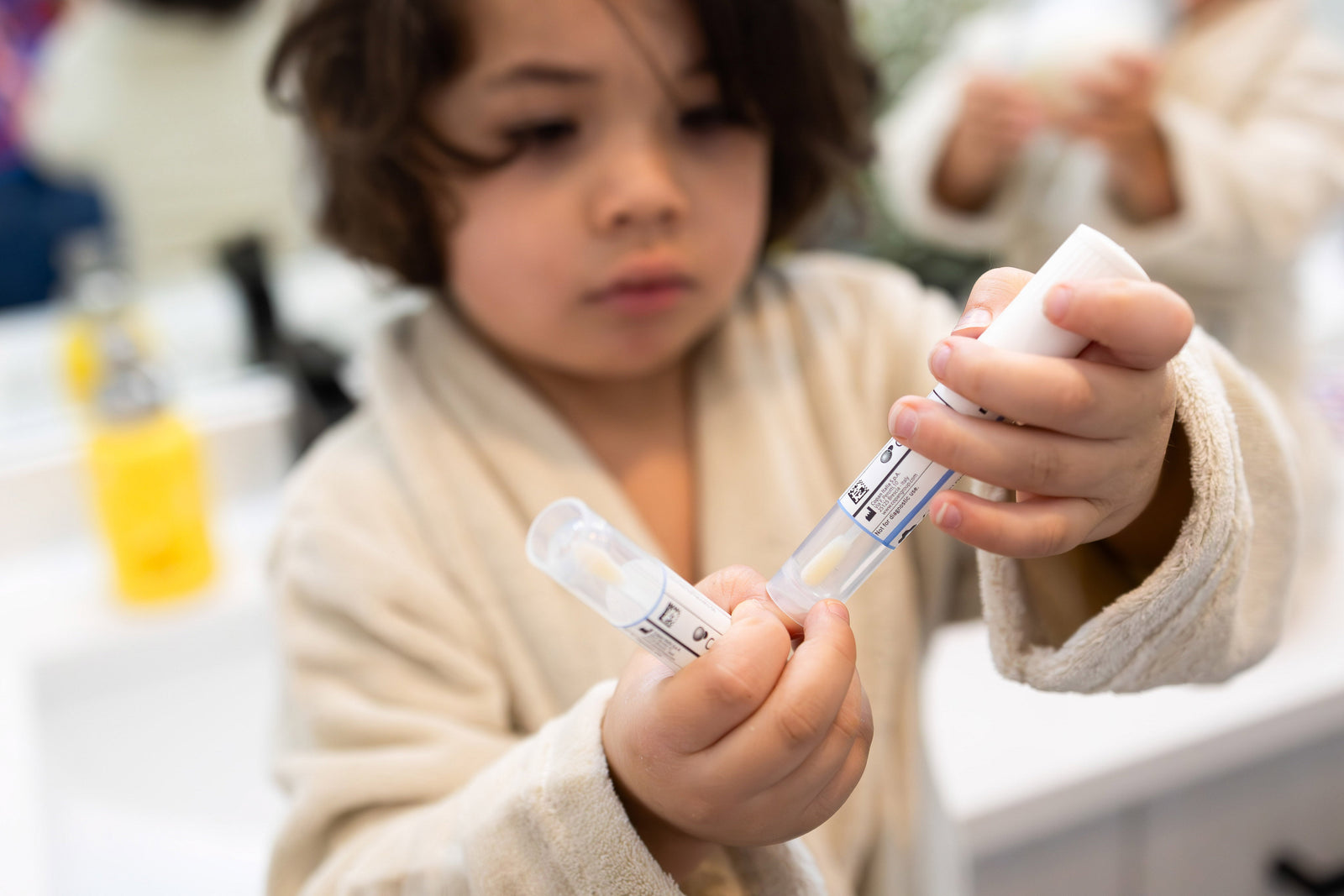Your Cart is Empty
Continue shoppingTop Signs of Gut Dysbiosis in Preterm Babies : Essential Guide for Parents
Medically Reviewed by May Zhu, RDN | Published May 24, 2024
share this article

Gut health is crucial for the overall well-being of preterm babies, whose underdeveloped digestive systems are particularly vulnerable to imbalances in gut microbiota, known as gut dysbiosis. This condition can lead to a range of health issues, making it essential for parents and caregivers to recognize the signs early. Let's review what parents need to know about the top signs of gut dysbiosis in preterm babies.
What is Gut Dysbiosis?
Gut dysbiosis refers to an imbalance in the microbial communities residing in the intestines. In preterm babies, this imbalance can result from factors such as antibiotic use, formula feeding, and prolonged hospital stays. Healthy gut microbiota are essential for nutrient absorption, immune system development, and protection against pathogens.
Daily reads to help your little ones lead happier and healthier lives.
Buy Now
Join the
Happy Gut Club
Top Signs of Gut Dysbiosis in Preterm Babies
Frequent Gastrointestinal Distress
Gastrointestinal distress, including bloating, gas, and abdominal discomfort, is a common sign of gut dysbiosis. Preterm babies may exhibit frequent crying and discomfort due to these symptoms. A study published in The Journal of Pediatrics found that preterm infants with gut dysbiosis often had higher rates of gastrointestinal symptoms compared to those with balanced gut microbiota [1].
Irregular Bowel Movements
Irregular bowel movements, such as diarrhea or constipation, can indicate gut dysbiosis. According to research in Pediatric Research, preterm babies with dysbiosis often experience altered bowel patterns, which can lead to dehydration and nutritional deficiencies [2]. Consistency and frequency of stool can be key indicators of gut health.
Poor Weight Gain
Inadequate weight gain is another sign of gut dysbiosis. Healthy gut bacteria are crucial for nutrient absorption and metabolism. A study in The Lancet highlighted that preterm babies with dysbiosis had significantly lower weight gain compared to those with healthy gut microbiota [3]. Monitoring weight gain closely can help identify potential gut health issues.
Recurrent Infections
Preterm babies with gut dysbiosis are more susceptible to infections. The gut microbiota play a vital role in developing the immune system. Research in Clinical Infectious Diseases showed that preterm infants with dysbiosis had higher rates of respiratory and urinary tract infections [4]. Recurrent infections can be a red flag for underlying gut health issues.
Skin Problems
Skin issues, such as eczema and rashes, can also be linked to gut dysbiosis. The gut-skin axis is a concept where gut health directly influences skin conditions. A study published in The Journal of Allergy and Clinical Immunology found that preterm babies with gut dysbiosis were more prone to developing atopic dermatitis and other skin problems [5]. Healthy gut bacteria help modulate immune responses, reducing the risk of inflammatory skin conditions.
Behavioral Changes
Behavioral changes, such as increased irritability and fussiness, can be associated with gut dysbiosis. The gut-brain axis connects gut health with neurological and psychological well-being. A study in Frontiers in Pediatrics found that preterm babies with dysbiosis often exhibited more irritability and difficulty sleeping [6]. Addressing gut health can have a positive impact on mood and behavior.
Addressing Gut Dysbiosis
Recognizing the signs of gut dysbiosis is crucial for timely intervention. Strategies to improve gut health in preterm babies include:
Probiotics: Supplementing with probiotics can help restore healthy gut bacteria. A study in The American Journal of Clinical Nutrition demonstrated that probiotic supplementation in preterm infants reduced the incidence of necrotizing enterocolitis (NEC) and improved overall gut health [7]. Please consult your healthcare practitioner before incorporating a probiotic into your preterm infant's diet.
Breastfeeding: Breast milk contains beneficial bacteria and prebiotics that support a healthy gut microbiome. Encouraging breastfeeding can significantly improve gut health in preterm babies.
Minimizing Antibiotic Use: Judicious use of antibiotics is essential to prevent disruption of gut microbiota. When antibiotics are necessary, probiotics can help mitigate negative effects.
Where to start?
Recognizing signs of gut dysbiosis in preterm babies such as gastrointestinal distress, irregular bowel movements, poor weight gain, recurrent infections, skin problems, and behavioral changes is essential for early intervention and promoting overall health.
Incorporating a Baby Poop Test can help identify microbial imbalances in a preterm infant's gut, providing early indications of dysbiosis linked to the symptoms described. This allows for tailored interventions that can improve gut health, enhance nutrient absorption, and support overall development.
Summary
Addressing gut health through probiotics, breastfeeding, and careful antibiotic use can help improve outcomes for preterm babies.

Author
May Zhu, RDN
Trending

Why Parents Are Choosing Prebiotics Over Stool Softeners for Kids
read now
Inc. Names Begin Health to Its 2025 List of the Fastest-Growing Private Companies in the Midwest
read now
Oxalates and Kids' Digestion: How High-Oxalate Foods Contribute to Constipation and Gut Discomfort
read now






